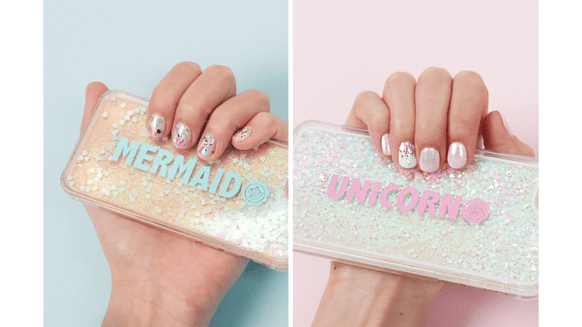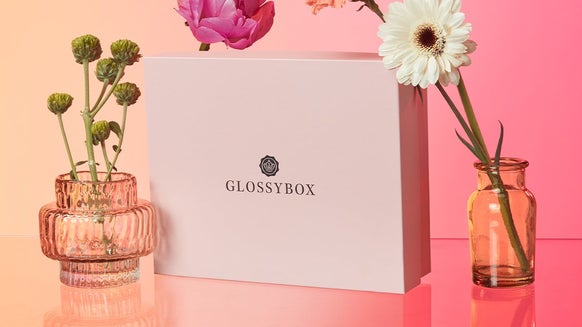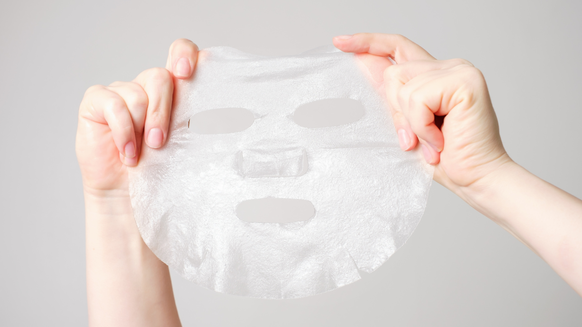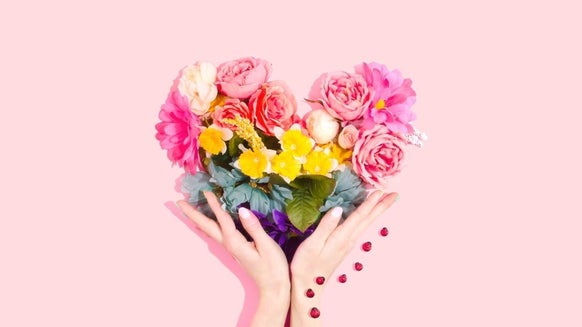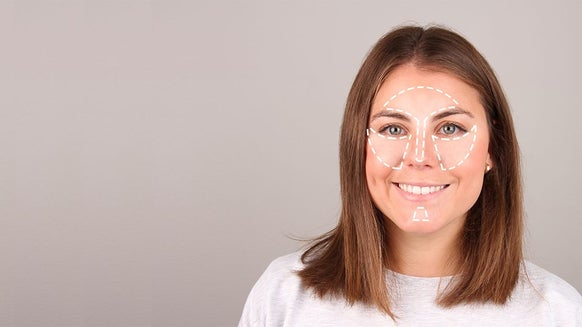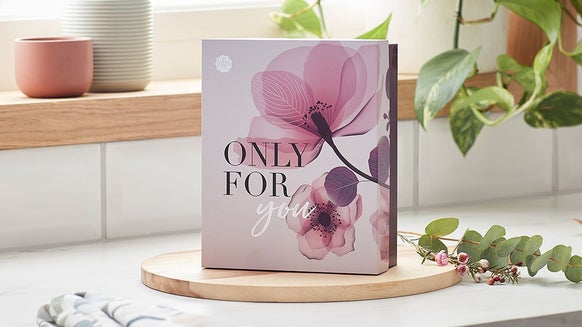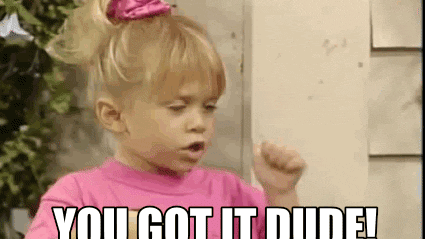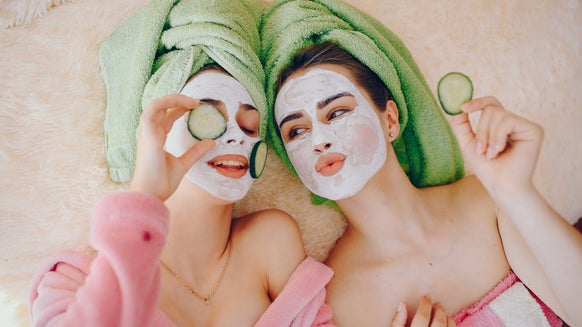An Interview With Scarlett Curtis: Feminist Don’t Wear Pink And Other Lies
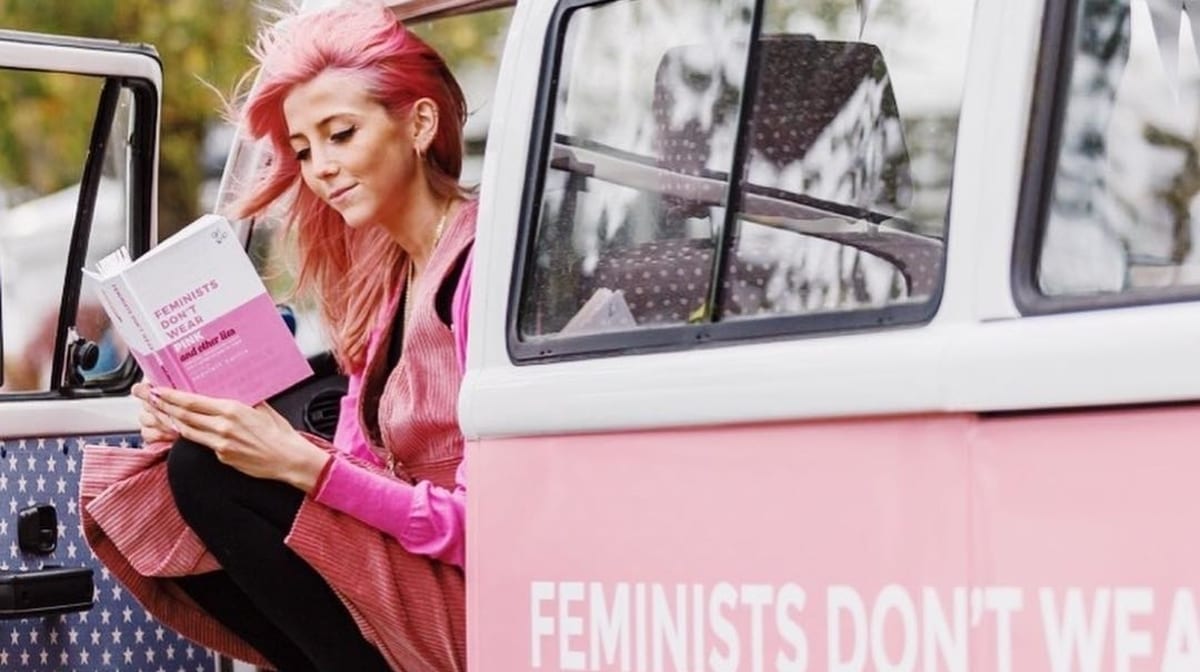
To celebrate the launch of our ‘Empowerment’ box, I’ll be interviewing an array of inspiring women this month. Keep an eye on
https://www.instagram.com/p/BpCupHnBKuB/
I realised I was a feminist when I was about 15. I wasn’t very well and went through a really tough time being in and out of hospital. I was often dismissed by doctors, misdiagnosed and eventually had a traumatic back operation.
I always say that feminism is self-help.
To get me through, I started reading a lot of feminist books, including Gloria Steinem, Audre Lorde, Bell Hooks and Caitlin Moran. Reading these women’s stories and understanding more about feminism allowed me to make sense of my life in a way I’d never really felt before.
From the age of 19, I worked for various activism organisations, though these weren’t specifically feminist groups. Around the time of the 2016 American election though, I started campaigning for Hilary Clinton and getting involved with more grass-root activism. That’s where a lot of what I do now came from.
https://www.instagram.com/p/BPiC3LTlxpz/
There were so many different causes that I cared about and so many different people that I wanted to help. With The Pink Protest, we support other campaigns around other activists. It’s really just a way of mobilising young people and getting them excited about activism.
I cared about so many causes and wanted to support so many different people.
The Pink Protest became my way of making activism easy and accessible. Everyone wants to get involved, you just need to give them a space in which they can do that.
It’s really tough to pick just one! Right now though, we’re doing a really exciting campaign alongside Nimco Ali, an anti-FGM activist. We’ve been supporting her and are trying to get FGM included in the Children’s Act. (If you’d like to find out more, click
https://www.instagram.com/p/BtlcHu6h5C5/
I knew that I didn’t want to write a book about feminism that was just a reflection of me, because my experience isn’t emblematic of all women. I also knew I wanted to do something for charity (all proceeds from the book go to
I wanted the stories of these amazing women to reflect the scope of the feminist movement.
We kept the brief really lose. We weren’t sure what everyone was going to come up with, but in the end that’s what made the book what it is. They were different and creative stories that reflected the scope of the feminist movement.
Definitely yes! Getting men involved is a really important part of the movement. I think men actually want to learn more about and better understand feminism.
I’d encouraged you to talk to everyone about feminism.
Besides, feminism helps men just as much as it helps women. Growing up, I felt this outwards societal pressure to look good, to not be too loud and not too quiet, which my brothers didn’t necessarily experience. However, there are a lot of pressures on boys as well. Pressures to be strong and confident. It’s all caused by the same patriarchal system.
I think that it’s definitely important for men to get involved with feminism. So far though, the feminist movement has been predominantly made up by women. I wanted to curate a book that fully reflected my experiences of feminism, and that made young girls realise that they could be feminists too. If someone else wants to curate a book with men it would surely be great, but that’s just not what we decided to do with this one.
https://www.instagram.com/p/BmQcRHuDLoJ/
I don’t think anyone ever openly spoke about it when I was young. It was only when I moved to New York aged 19 that I was introduced to a lot of feminist groups.
Feminism isn’t a scary word or an unapproachable movement.
That was another motivation behind creating this book. We made it primarily for teenage girls. We wanted them to realise feminism isn’t a scary word or an unapproachable movement. It’s something they can get involved with.
I think that if you’re only wearing makeup because the patriarchy is telling you to wear it, then you probably shouldn’t be wearing it. But actually, I’ve never met a woman who only wears makeup to impress men or because she feels she has to.
Makeup and fashion can be empowering tools for a lot of woman, they definitely were for me!
Everyone I know uses makeup as a form of self-expression and self-empowerment. The same goes for looking after your skin and caring about clothes. It has nothing to do with being a feminist. You can be a feminist no matter what you look like.
Empowerment is about not being too hard on yourself. I think empowerment is really important, but it’s also brought on this new standard that women have to achieve. We’re expected to be strong and confident, and to love every part of our bodies. Actually though, I feel empowered when I give myself a bit of a break.
I feel empowered when I just give myself a break.
I think to myself: ‘You’re fine as you are, everything you’re doing is going well, you’re trying your hardest’. If that means that some days I just want to sit in bed and watch Netflix, or I leave a party after 5 minutes because I’m not comfortable, then that’s okay. The empowering thing about that is just accepting that that’s who I am and not tearing myself down for it.
https://www.instagram.com/p/Bqkpvj3Bal4/
Join The Glossy Family
We’ve now sold out of our March box, but you can still be part of the Glossy Family! Subscribe now to pre-order your April ‘Fruity or Floral’ edition. Featuring two special design boxes bursting with fruity fragrances and flowery formulas, it’s not to be missed!


